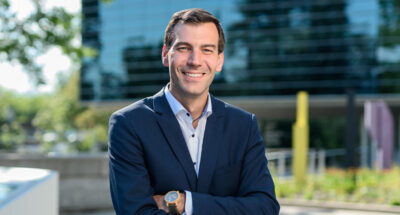In the early 2010s, MAVA and Oak Foundation, two of the world’s most impactful environmental philanthropic foundations, met several times to advance their thinking about the climate and environmental crisis. In 2015, their leaders gathered for a formal retreat. Their goal? To figure out how they could work together to make a real difference to the future of the planet. Working individually had yielded some results, but change was not happening at the required rate.
That meeting led to the creation of the Partners for a New Economy (P4NE), which brought together the MAVA, Oak, Marisla, and KR Foundations to tackle the root causes of environmental degradation through shared risk-taking and the collective deployment of resources.
“There was the feeling that things were not changing or moving fast enough,” said Vinit Rishi, Special Advisor to the Oak Foundation President and Director of Oak’s India Program. He recalled that Oak Trustee Kristian Parker used the words “We are winning battles, but not winning the war, so we thought we should try something different. Working in collaboration makes us stronger and provides leverage.”
Following exploratory conversations, the funders decided to set up a high-risk, high-impact donor collaborative focusing on the economic system as the root cause. To establish a clear structure and meet legal requirements, P4NE partnered with Swiss Philanthropy Foundation, simplifying administration and pooling costs. By hosting the fund, Swiss Philanthropy Foundation alleviated the administrative burden and managed legal risks. P4NE was committed to having a board that would fulfill its purpose and leverage each other’s assets to have a greater impact than acting alone.
Since 2015, the four founders have been joined by the Laudes, Ford, and Hewlett foundations, and the Omidyar Network, while the Hoffmann-established MAVA Foundation was wound up in 2023, after 28 years of grantmaking. The impact of the collaboration is impressive today. Starting with six grants totaling $2.7m in 2016, the P4NE gave 19 grants worth $4.9m in 2022. Among many grantees are respected organizations such as CEP, IIPP, Positive Money, Law & Political Economy Europe, Economists for Future, Movement Hub, Hot or Cool Institute, and the Doughnut Economics Action Lab.
“Family foundations can take more risks than others, so why don’t we do more of it? It started with the idea of how we take risks to find big solutions to big problems. Giga problems need giga solutions,” explained Lynda Mansson, former Director General of MAVA Foundation.
“Through lots of brainstorming, we wound up deciding that systems change in the economic system was one of the underlying issues. Environmental degradation is driven by how the economy works and the value, or lack thereof, that we place on helping nature,” Mansson added.
As a result of an open-minded initial process of experimenting and learning together, the partnership decided to address issues linked to monetary policy and economics education, funding initiatives that would influence the way central banks viewed environmental risks in their modeling and decisions, and encouraging the introduction of newer economic models into the education system.
“We wanted to build an economy that values people, planet, and profit,” Mansson said. “A few years down the road, things that were previously unimaginable started happening. For example, Mark Carney, the former governor of the Bank of England, was bringing environmental standards into central bank criteria.”
Jo Swinson, a former UK government minister and former leader of Britain’s Liberal Democrats, has served as P4NE’s Director since 2020, taking over from the founding Director, Leslie Harroun. She explained: “It was about recognizing that we have an economic system that is structured in a particular way where the environment is seen to be external to the economy. The environment is a key part of our economy thriving. We need to have an economic system that recognizes the value of nature and that has that built in.”







